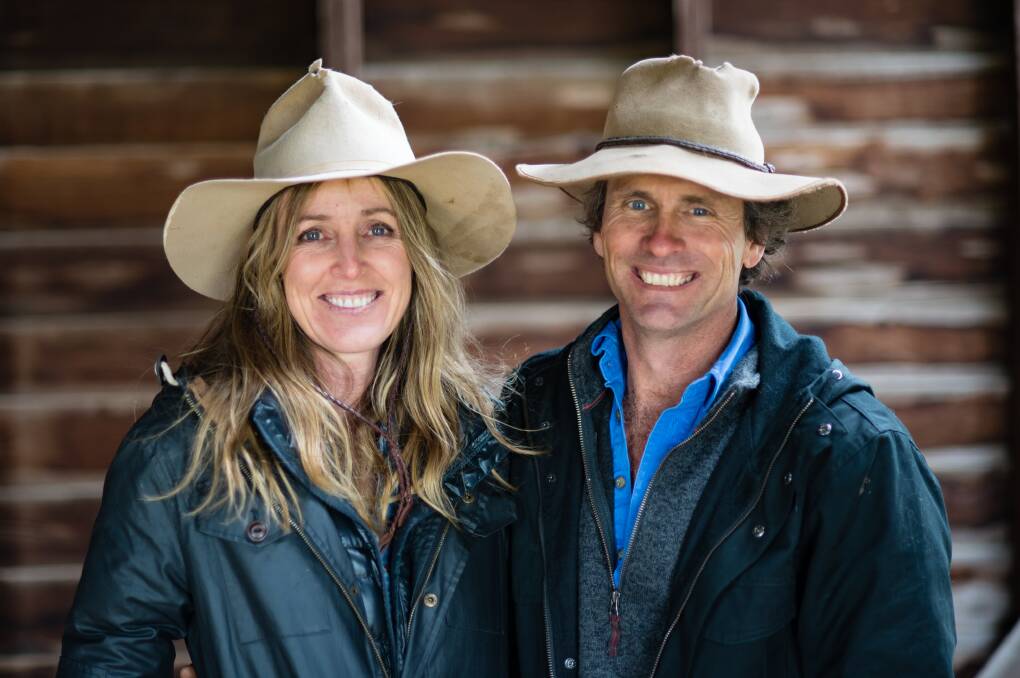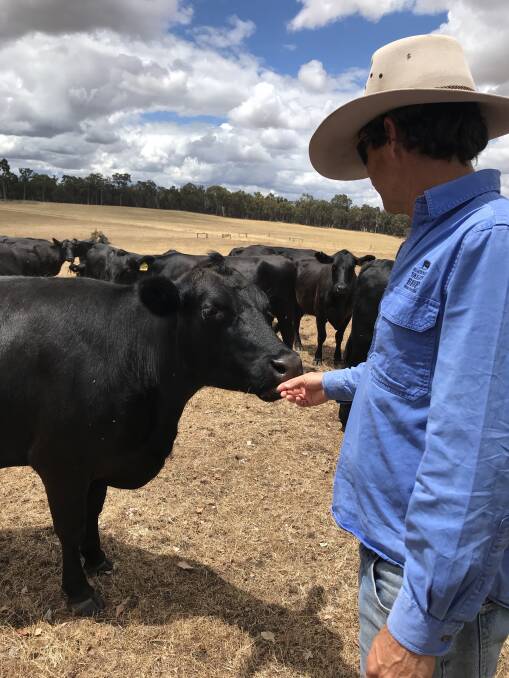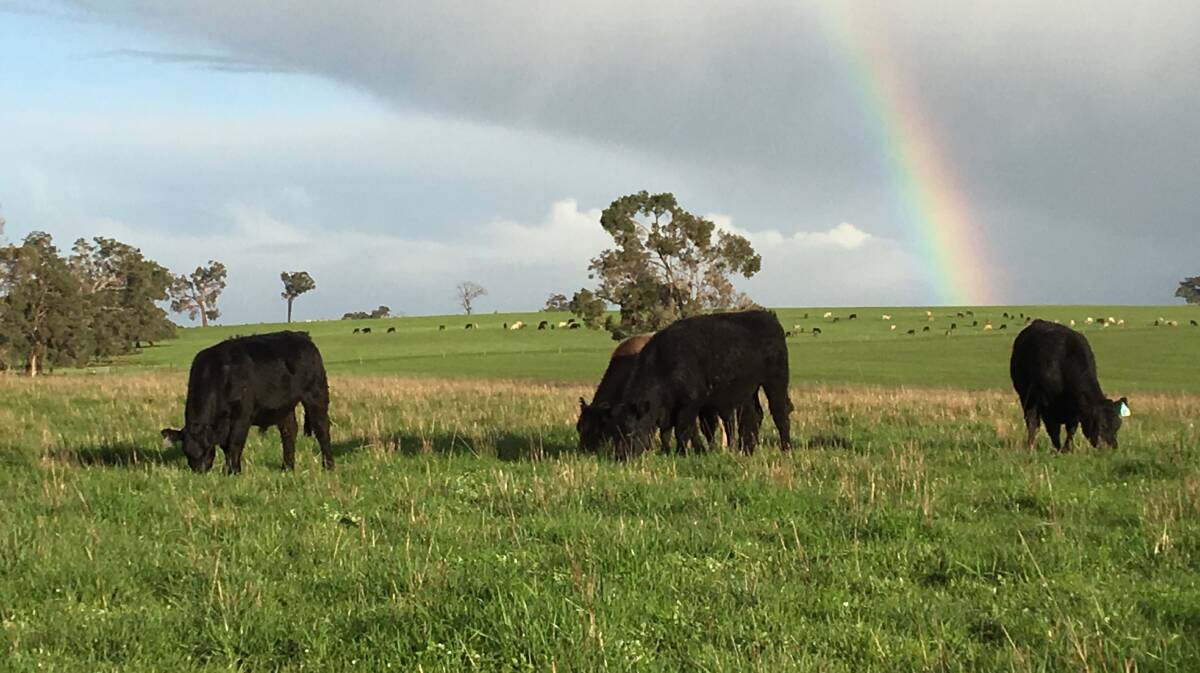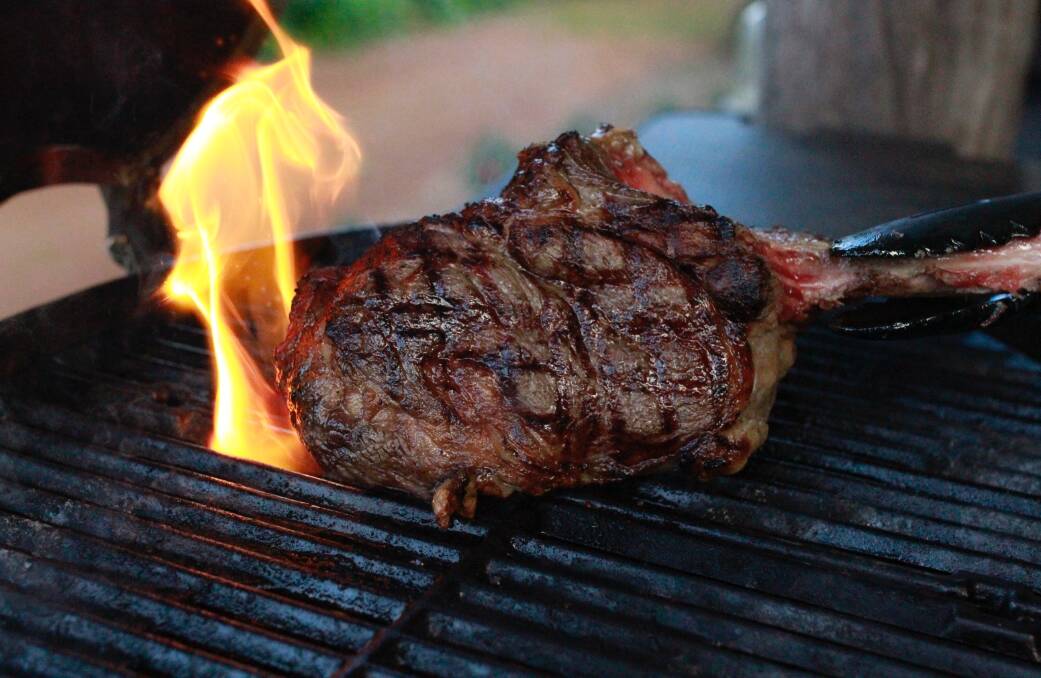
CORONAVIRUS closures halving the State hospitality industry's income are also having unfortunate flow-on effects for many farm businesses embedded in paddock-to-plate alternatives to mainstream food production.
Carefully cultivated reputations for high quality, traceability, ethical animal husbandry and years spent achieving and proving organic certification count for little when discerning diner restaurants and hotels at the end of the supply chain are forced to close their doors to sit-down customers.
Even the best chefs struggle to demonstrate good health and top taste benefits of fresh, locally-produced, lean, clean, green ingredients when they are confined to presenting it in a plastic pack to be taken home, tipped out on a plate and reheated in a microwave oven.
Suddenly, select bistro bars that two months ago boasted tender and juicy brand-named steaks, are competing with fast-food chain outlets in a desperate bid to generate enough cash-flow to keep the businesses going in some form until the health crisis is over and social gathering restrictions are lifted.
Even some of the traditional outlets for home-grown food producers - popular Perth and regional farmers' markets - have closed for the time being and, at those still operating at bigger venues with reduced numbers of stalls, the crowds are thin as everyone tries to stay 1.5 metres apart.
Blackwood Valley Beef, Boyup Brook, is one of the niche farm businesses modifying what it does to meet the tough times.
Its website proudly lists 25 restaurants in Perth and across the South West region that, prior to the coronavirus crisis, it supplied with "naturally grassfed" choice beef cuts.
But that does not mean Blackwood Valley Beef is at risk of disappearing any time soon.
On the contrary, Warren and Lori Pensini are still producing premium grassfed beef on Paraway farm - the home of Blackwood Valley Beef - on the loamy and gravelly hills of the Blackwood River watershed north west of Boyup Brook.
Coping with the coronavirus complication has simply been absorbed into another stage of the ongoing evolution of Blackwood Valley Beef - an evolution occurring steadily since 2004.
The Pensinis are collaborating with other like-minded regenerative farmers and processing and marketing their product through online home shopping, retail and food service brand Dirty Clean Food, launched last year by publicly-listed sustainable agriculture company Wide Open Agriculture (WOA) based in Williams.
Under current circumstances Dirty Clean Food is focussed on selling online for home delivery throughout Perth suburbs, guaranteeing antibiotic and growth hormone-free, grass-fed, sustainably-raised and humanely treated boxed beef supplied by the Pensinis and several other farmers who comply with WOA's regenerative farming protocols.
The home-delivered premium boxed beef can be anything from two steaks up to a full side of beef, with assorted family packs available.

As a Dirty Clean Food product, Blackwood Valley Beef is also available in some Perth retail outlets - primarily IGA and Farmer Jacks stores - and WOA continues to supply those restaurant and hotel clients who have swung over to exclusively takeaway menus, with beef produced by the Pensinis.
The beef is processed by Dardanup Butchering Company, vacuum packed and delivered around Perth from cold storage facilities in Bassendean.
Dirty Clean Food also sells similarly sustainably-sourced local lamb and wild-caught Australian seafood.
For Mr Pensini, growing enough of the perennial grasses in his paddocks to keep his cattle happy under a regenerative farming regime is - at least until the autumn rains arrive with some frequency - far more of an immediate concern than any impact of coronavirus for his business.
Children, daughter Rainey, 24 and son Mitchell, 21, now live in Perth.
The Pensinis have little need to travel outside of the South West region for business - Lori is also an accomplished portrait artist with her painting The Telegram highly commended by judges earlier this month in the 2020 Gallipoli Art Prize in New South Wales.
If they do need to go through a regional boundary checkpoint their occupations as farmers and artist will see them pass.
"It (coronavirus) hasn't had much of an impact on us and, in the long run, it may actually be of some benefit to us," Mr Pensini said, alluding to likely greater consumer interest in where food comes from and how it is produced, as a consequence of the global pandemic having origins in the dubious hygiene of the wet markets in Wuhan, China.
Climatologists agree the drying climate of Western Australia's South West region is one of the places the impact of climate change is most obvious in Australia.
Spring and summer were dry and difficult, Mr Pensini pointed out, particularly when relying on perennial grasses to feed stock and for maintaining ground cover to prevent erosion and to trap and retain whatever moisture is available, be it rain or just the early morning autumn mists that shroud the Blackwood River valley.
"We basically only grew grass for four months of last year," he said.
"Our stock numbers are right down at the moment, probably as low as they have ever been (in 18 years) on the farm.

"We're currently running 300 head total - breeders and weaners.
"Total DSEs (dry sheep equivalent) on the farm are currently around 2800, normally at this time of year it's around 4000 DSE but we can get up to around 8000 DSEq in spring.
The Blackwood Valley Beef herd was originally Shorthorn mated to Angus bulls and is now mainly Angus, although there are some grey cattle and a few red hides with white faces in the herd.
In one relatively recent evolution of Blackwood Valley Beef, the Pensinis worked collaboratively with Mark and Karen Forrester of Kanandah station, 350 kilometres east of Kalgoorlie and neighbours to Rawlinna station on the Nullarbor Plain.
The Forresters supplied premium quality certified organic Murray Grey steers and heifers which were finished at Boyup Brook.
But with seasonal conditions as they are, the Pensinis are breeding their own cattle and sending them out during the summer dry period to another WOA grassfed regenerative agriculture collaborator, Blythe Calnan at Runnymede farm, Binningup, for finishing on irrigation.
"Just looking at the figures for the last batch we sent (for processing), they averaged 267 kilograms with 6.5 millimetres of fat," Mr Pensini said.
"Ideally we would like to have 10mm of fat as an average, however 6.5mm at this time of year is pretty good," he said.
Blackwood Valley Beef calves are usually taken off cows at four to six months and steers and heifers are usually turned off at between 20 and 24 months, but nothing is set to a timetable, condition is the determining factor.
"We don't turn off a certain number of cattle at any particular time, they are turned off when they're ready to be turned off," Mr Pensini said.
"It's not like we have to turn off so many a month."
The herd rotates through the farm's paddocks, with the amount of grass at any given time and how quickly it is eaten down, but not eaten out, determining how long it spends in any particular paddock.
While he was talking to Ripe, Mr Pensini brought up the farm's feed base record on computer screen, the last time the herd was in the paddock it is currently in was four months ago.
The cattle are regularly yarded and handled so there is no stress when they are moved between paddocks or onto a truck.
Well aware of the need for an online presence to publicise what they do, Mr Pensini has uploaded videos on the Blackwood Valley Beef Facebook page of him walking among the herd, scratching cattle behind the ears.

He describes his approach to farming as "holistic" - that is, attention to every detail, rather than just the end result.
There is scientific evidence to prove 100 per cent grassfed beef has health advantages over grainfed beef.
Basically, the ratio of Omega 3 (good fats that dissolve at body temperature) to Omega 6 (harmful fats that build up around major organs) fatty acids is better in grass-fed beef.
As well, it contains more Conjugated Linoleic Acid - commonly known as CLA, which appears to have some cancer and inflammation fighting properties - and Vitamin E and is a rich source of minerals, folic acids, calcium, potassium, thiamine and riboflavin - all essential for good health.
But Mr Pensini is less convinced about the benefits of being certified organic- Blackwood Valley Beef gained certification in 2008 and has maintained certification since, but that is under review.
"It's (organic certification) quite restrictive on farm inputs," Mr Pensini explained.
Currently, a natural liquid fertiliser is the only thing sprayed on the farm's paddocks.
He does not want to douse the farm in chemical, but there are times when he would like more freedom to use certain inputs to help adjust imbalances in the soils more quickly than nature can do on its own.
But the biggest issue with being certified organic is there is no longer a commensurate reward at the end of the supply chain for the restrictions imposed at the beginning, Mr Pensini claimed.
"In the early days of organic certification there was a substantial (price) premium that made it worthwhile to do," he said.
"But these days there's no significant premium for certified organic."
A fourth-generation farmer raised on Pilbara cattle stations and later a feedlot manager, he has been a passionate advocate of regenerative farming since completing a Grazing for Profit course run by Resource Consulting Services, Queensland, in 2004.
But he is also pragmatic.
In the early days of Blackwood Valley Beef he tried the traditional paddock-to-plate route of direct marketing to customers at farmers' markets.
"It was too time consuming, I was spending up to four days a week off farm," Mr Pensini said.
"People don't realise how much time goes into preparing, travelling and setting up for those markets."
The $5 million public float of WOA in July 2018 and creation of Dirty Clean Food with its collaboration with Blackwood Valley Beef has been a win-win situation.
Mr Pensini helped WOA establish its transparent beef and lamb supply chains and helped write its regenerative farming protocols that its farmers must sign up to.
Basically, the Blackwood Valley Beef experience over the years and the different things the Pensinis have tried on their own or collaboratively with others in developing their own regenerative farm business, became the practical test bed for WOA's ethos.
In return, having Dirty Clean Food take up the marketing of his beef has given Mr Pensini more time to do what he loves most - caring for his cattle and growing grass.

